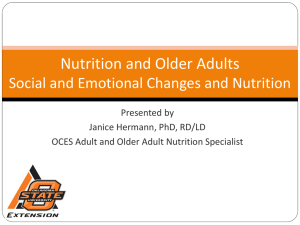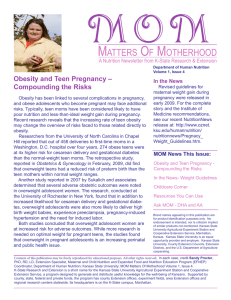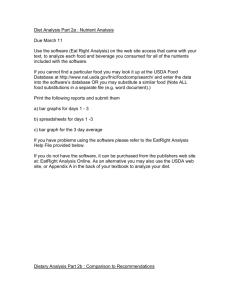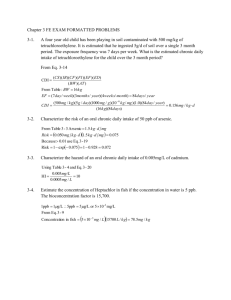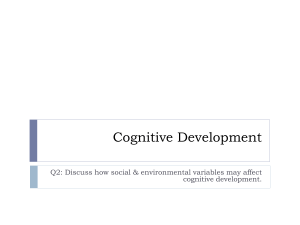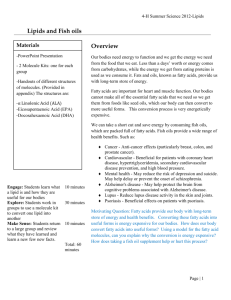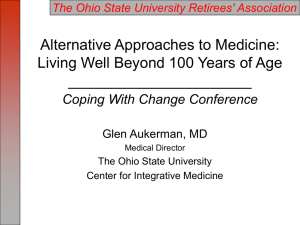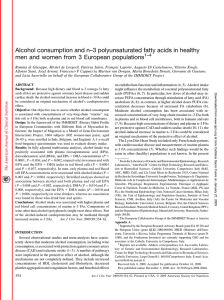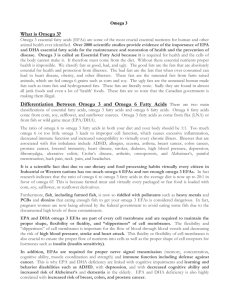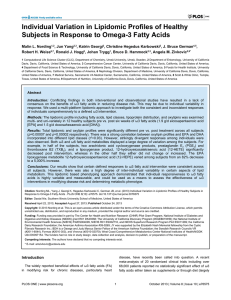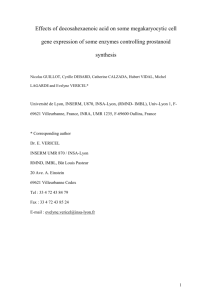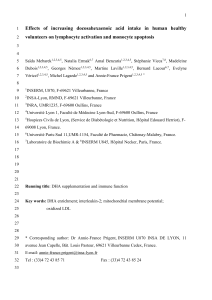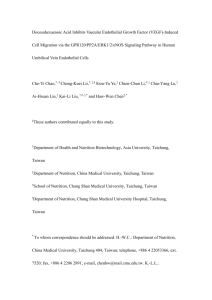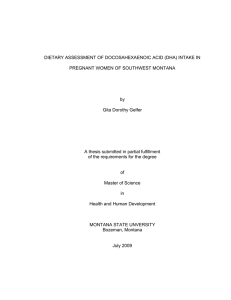Diet Can Predict Cognitive Decline
advertisement
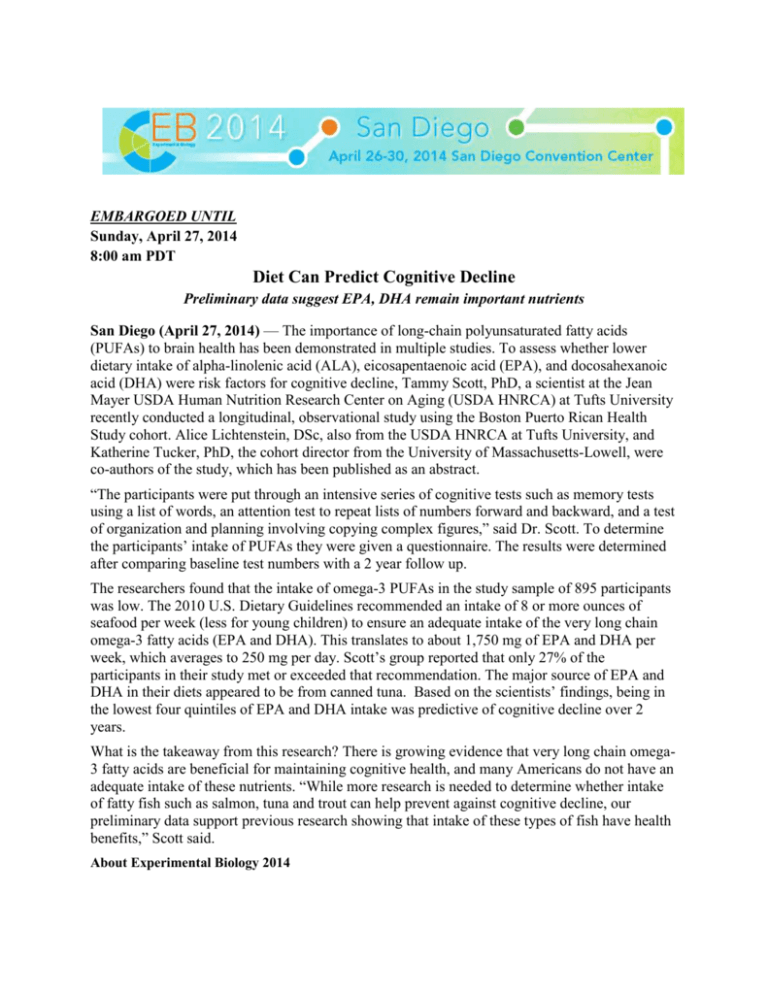
EMBARGOED UNTIL Sunday, April 27, 2014 8:00 am PDT Diet Can Predict Cognitive Decline Preliminary data suggest EPA, DHA remain important nutrients San Diego (April 27, 2014) — The importance of long-chain polyunsaturated fatty acids (PUFAs) to brain health has been demonstrated in multiple studies. To assess whether lower dietary intake of alpha-linolenic acid (ALA), eicosapentaenoic acid (EPA), and docosahexanoic acid (DHA) were risk factors for cognitive decline, Tammy Scott, PhD, a scientist at the Jean Mayer USDA Human Nutrition Research Center on Aging (USDA HNRCA) at Tufts University recently conducted a longitudinal, observational study using the Boston Puerto Rican Health Study cohort. Alice Lichtenstein, DSc, also from the USDA HNRCA at Tufts University, and Katherine Tucker, PhD, the cohort director from the University of Massachusetts-Lowell, were co-authors of the study, which has been published as an abstract. “The participants were put through an intensive series of cognitive tests such as memory tests using a list of words, an attention test to repeat lists of numbers forward and backward, and a test of organization and planning involving copying complex figures,” said Dr. Scott. To determine the participants’ intake of PUFAs they were given a questionnaire. The results were determined after comparing baseline test numbers with a 2 year follow up. The researchers found that the intake of omega-3 PUFAs in the study sample of 895 participants was low. The 2010 U.S. Dietary Guidelines recommended an intake of 8 or more ounces of seafood per week (less for young children) to ensure an adequate intake of the very long chain omega-3 fatty acids (EPA and DHA). This translates to about 1,750 mg of EPA and DHA per week, which averages to 250 mg per day. Scott’s group reported that only 27% of the participants in their study met or exceeded that recommendation. The major source of EPA and DHA in their diets appeared to be from canned tuna. Based on the scientists’ findings, being in the lowest four quintiles of EPA and DHA intake was predictive of cognitive decline over 2 years. What is the takeaway from this research? There is growing evidence that very long chain omega3 fatty acids are beneficial for maintaining cognitive health, and many Americans do not have an adequate intake of these nutrients. “While more research is needed to determine whether intake of fatty fish such as salmon, tuna and trout can help prevent against cognitive decline, our preliminary data support previous research showing that intake of these types of fish have health benefits,” Scott said. About Experimental Biology 2014 Experimental Biology is an annual meeting comprised of more than 14,000 scientists and exhibitors from six sponsoring societies and multiple guest societies. With a mission to share the newest scientific concepts and research findings shaping current and future clinical advances, the meeting offers an unparalleled opportunity for exchange among scientists from throughout the United States and the world who represent dozens of scientific areas, from laboratory to translational to clinical research. www.experimentalbiology.org About the American Society for Nutrition (ASN) ASN is the preeminent professional organization for nutrition research scientists and clinicians around the world. Founded in 1928, the society brings together the top nutrition researchers, medical practitioners, policy makers and industry leaders to advance our knowledge and application of nutrition. ASN publishes three peer-reviewed journals and provides education and professional development opportunities to advance nutrition research, practice and education. www.nutrition.org ### Dr Tammy Scott will present the findings during the Experimental Biology 2014 meeting on Sunday, April 27, from 8:00-10:00 a.m. MEDIA CONTACT Suzanne Price Cell: 571-239-2839 media@faseb.org ONSITE NEWSROOM San Diego Convention Center April 26-30, 2014
